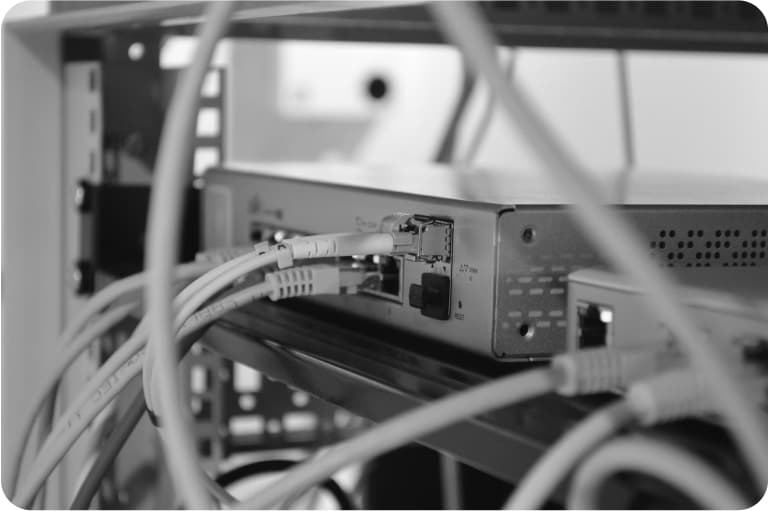Let’s make Cybersecurity
Top of Mind.

Optimal functioning cybersecurity can be quite difficult to navigate, especially when it comes to personnel working remotely from their homes. It's increasingly important to ensure that everyone is on the same page when it comes to protecting a company's data, and the best way to do this is by marketing cybersecurity in a smart way.
For example, if you're browsing your social media while working on a confidential corporate project, you're putting yourself and your employer at risk. Cyber security marketing is all about informing businesses and individuals about the risks and how to guard themselves against them. In our digital age, digital marketing is absolutely essential.



Why are Marketing Campaigns Important?
A competent cybersecurity marketing agency can assist you in creating a powerful cybersecurity marketing strategy to reach potential customers – whether it's through an entertaining webinar or some clever email campaigns. That's why cybersecurity content marketing is so immensely important it can provide you with valuable information and resources, enabling you to keep your clients informed and actively engaged.
Cybersecurity marketing campaigns – either internal or external – are absolutely critical for keeping up with the most recent cybersecurity industry trends. By leveraging cybersecurity inbound marketing techniques and taking advantage of state-of-the-art technology, you'll be able to reach potential customers like never before.
A successful cybersecurity marketing strategy blends multiple marketing tactics, such as cybersecurity advertising, cybersecurity content marketing, and digital marketing in cybersecurity, to create an overall engaging experience.
It's time to make cybersecurity sizzle!
Let's spread the word about the power of data protection and how simple it can be to stay secure.
Make sure everyone sees the risks of remote work and how to safeguard against them.
Emphasize that cybersecurity isn't just about protecting the company but also about protecting yourself.
Let's roll up our sleeves and make the cyber-world a safer place for everyone!


56% of folks aren't too fussed about the dangers of personal cyber security.
A recent Harnon Consulting Investigation has uncovered quite a conundrum: A whopping 56% of folks aren't too fussed about the dangers of personal cyber security. With the rise of remote working and a reliance on outdated technology, it's no surprise that our team has discovered a fair few individuals are not exactly following best practices at all when it comes to both corporate network connectivity and handling sensitive information.
Here is What our Strategists have Discovered in More Detail:
Our findings have revealed that most cyber security hardware companies tend to focus on B2B. In contrast, software companies tend to target B2C with a focus on company policies.
Our findings have revealed that most cyber security hardware companies tend to focus on B2B. In contrast, software companies tend to target B2C with a focus on company policies.
Our findings have revealed that most cyber security hardware companies tend to focus on B2B. In contrast, software companies tend to target B2C with a focus on company policies.
Our findings have revealed that most cyber security hardware companies tend to focus on B2B. In contrast, software companies tend to target B2C with a focus on company policies.
Our findings have revealed that most cyber security hardware companies tend to focus on B2B. In contrast, software companies tend to target B2C with a focus on company policies.
We have empowered our cyber security customers following our standard practice:
We've conducted polls and surveys to gain insight on three key areas: user susceptibility to cyber risk, current cyber risk levels, and brand recognition and loyalty - the latter being a crucial factor in building customer trust. This also helped us to discover the Net Promoter Score.
We've conducted polls and surveys to gain insight on three key areas: user susceptibility to cyber risk, current cyber risk levels, and brand recognition and loyalty - the latter being a crucial factor in building customer trust. This also helped us to discover the Net Promoter Score.
We've conducted polls and surveys to gain insight on three key areas: user susceptibility to cyber risk, current cyber risk levels, and brand recognition and loyalty - the latter being a crucial factor in building customer trust. This also helped us to discover the Net Promoter Score.
We've conducted polls and surveys to gain insight on three key areas: user susceptibility to cyber risk, current cyber risk levels, and brand recognition and loyalty - the latter being a crucial factor in building customer trust. This also helped us to discover the Net Promoter Score.